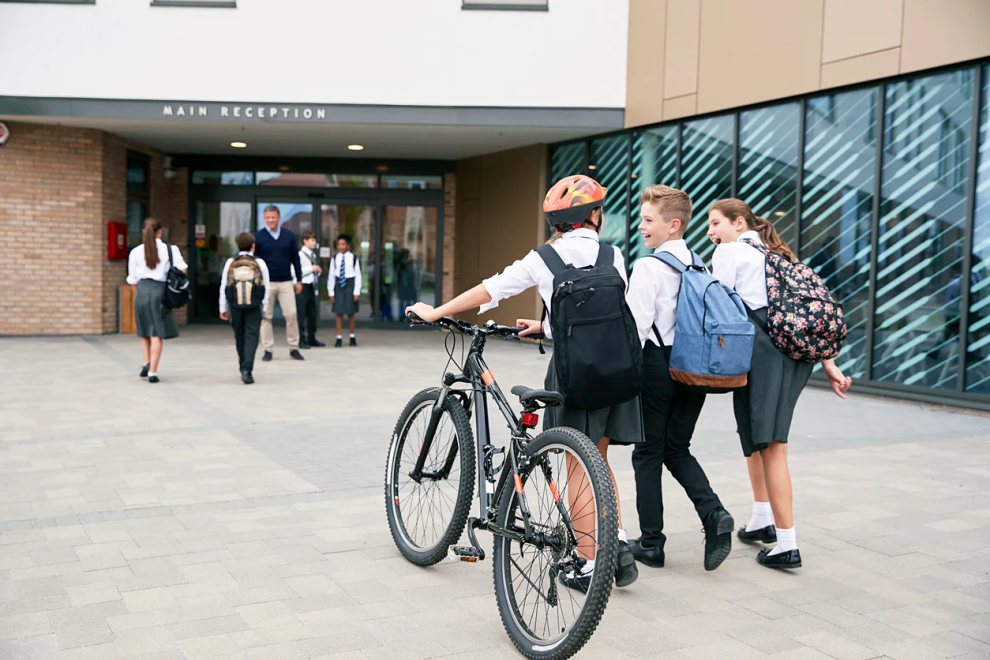Moving up to secondary school is one of life’s most defining moments for children and for parents, so we need to help them prepare for it
Navigating the complex halls of memory lane, we can all vividly recall our first day at ‘big school’.
The mix of nerves and excitement that filled our hearts is permanently etched in our memories. It’s a moment where young champions stand between childhood and adulthood, filled with both apprehension and excitement.
This transition is a significant change for your child, requiring a caring approach to help them adapt. The new, larger school building might feel unfamiliar compared to their old junior school.
Taking buses or trains independently could be their first taste of freedom. They’ll make new friends and mentors, encounter a more challenging curriculum, and be drawn to extracurricular activities.
Gone are the days of a single classroom; now they’ll learn from various experts in different rooms. They’ll need to learn personal organisation to manage their belongings and studies. In this time of transformation, the guidance of parents is crucial.
But don’t worry, there’s a compilation of advice to help you prepare!
First, get to know the school. Attend the welcome event for parents, approach it with positivity, and discuss concerns privately. Explore the building, talk to teachers, and appreciate the art and technology on display. Collect questions to ask about how the school supports this transition. Take pamphlets home and read them calmly to become familiar with the school’s principles.
Before the big day arrives, engage with the school through events like fairs, concerts, or galas. Familiarity will reduce apprehension. The school’s website is a valuable resource, offering insights into activities and the experiences of current and former students.
Connect with senior students to learn about the school’s culture. Arrange meetings with older siblings or friends for helpful conversations. Make sure your child is prepared – with selected uniforms, understood timetables, and a clear grasp of the rules.
If your child will use public transit, accompany them on practice runs to boost their confidence. Knowing platforms, bus stops, and schedules will ease their nerves. Finding friends among fellow travellers is a bonus. For safety, teach emergency protocols and share important contact numbers.
Starting big school marks a step into responsibility. Encourage self-reliance by nurturing independence as they finish primary school. As summer ends, let them pack for outings to build autonomy.
Amid the rollercoaster of emotions, be a steady source of comfort. Your role is unwavering support, even if they’re moody. Project optimism while acknowledging their worries, and encourage them to express their concerns.
As the first day approaches, lay out uniforms, check school bags, and gather essentials like pencils, books, and bus passes. Foster independence by encouraging them to have a hearty breakfast. Capture the moment with photos and send them off on their journey.
When their inaugural day ends, welcome them back warmly and listen to their stories. If they’re upset, provide a listening ear. Ask for specifics about friendships and subjects, fostering conversations about their new experiences.
Your involvement is vital throughout this journey. Sign diaries, understand schedules, and attend parent meetings. Build a partnership with the school to witness their growth. Encourage them to explore extracurricular activities, where friendships and talents thrive.
If challenges arise, the school is there to guide. Consult teachers if they struggle. At home, boost their confidence, acknowledge achievements, and offer wise advice.
With each new day, their journey unfolds. Discuss their trials and successes, imparting courage. In good times and bad, your unwavering support matters.


















